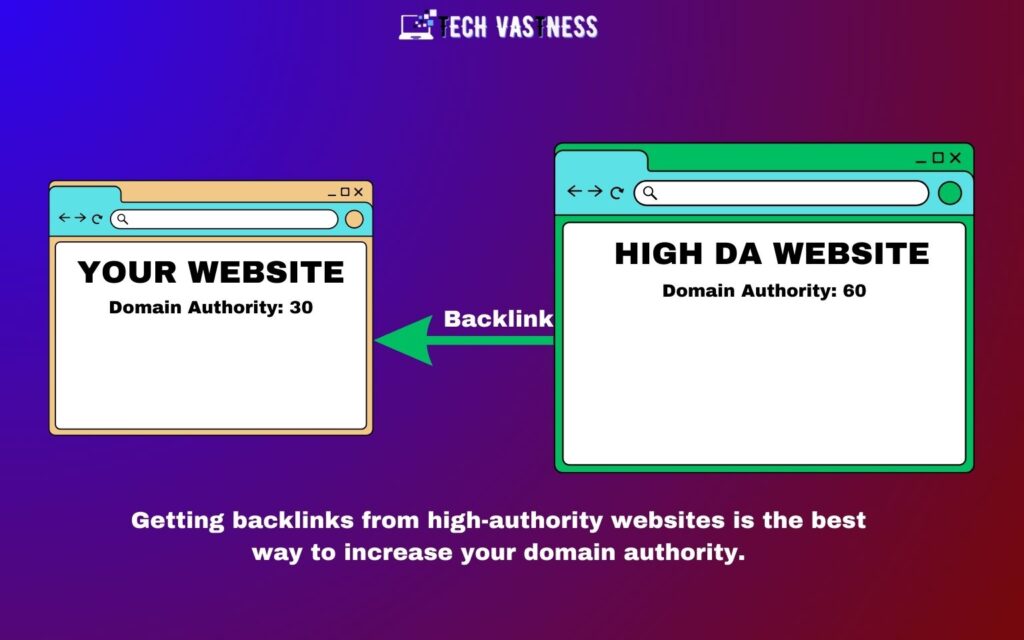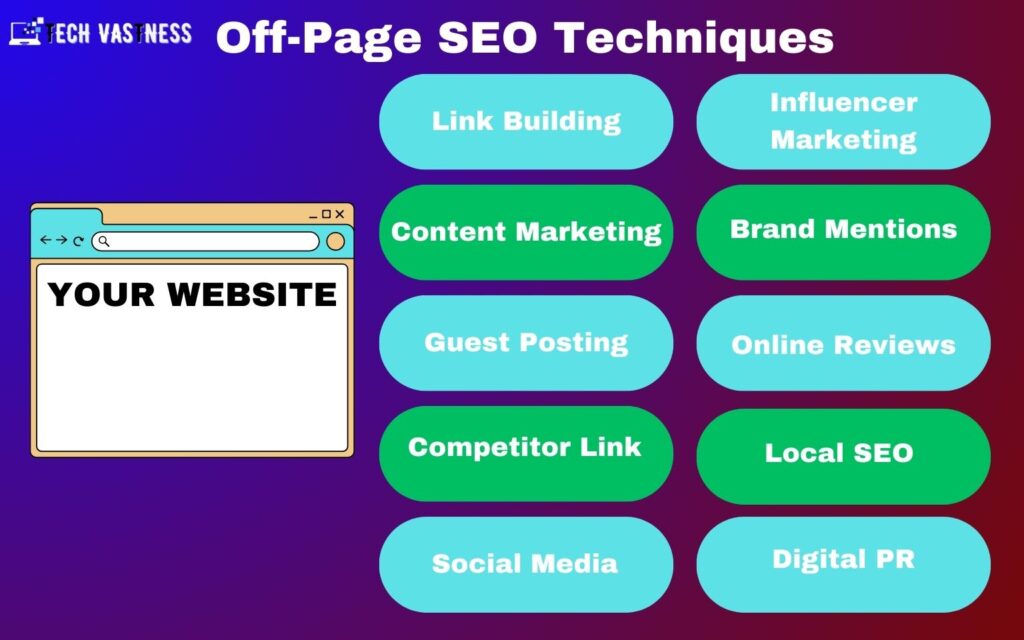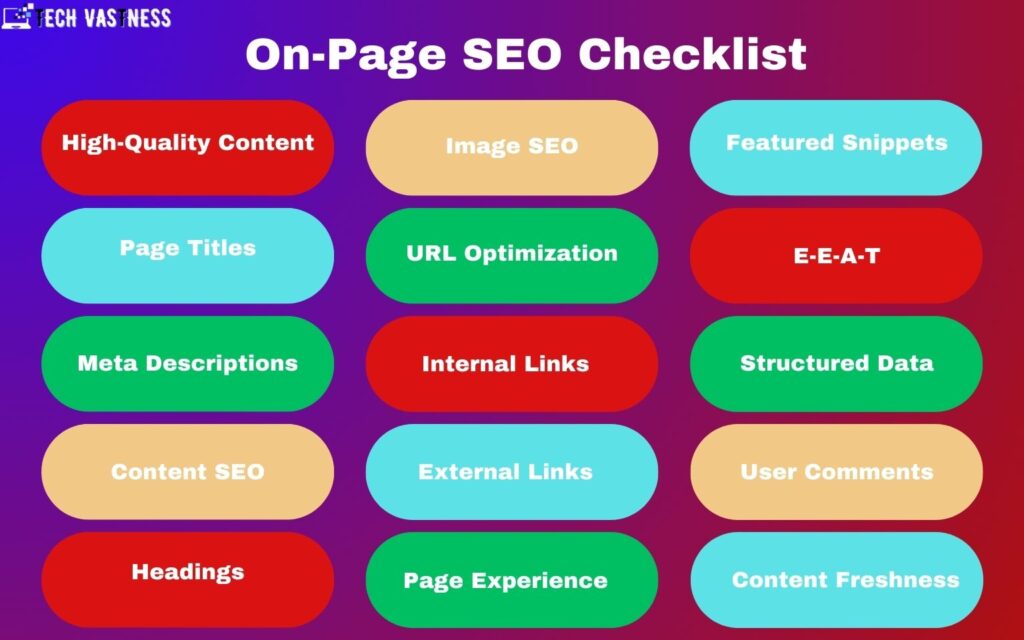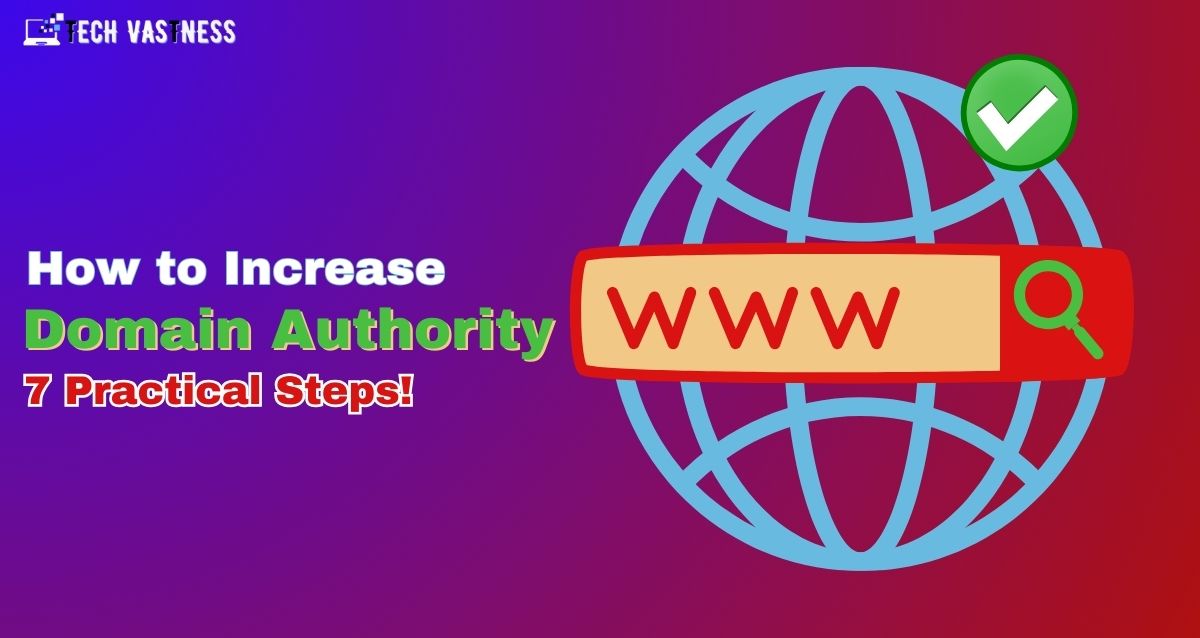If you want how to increase domain authority, let me be sincere building website authority is hard.
Domain authority is key to an effective SEO strategy and overall digital marketing plan. If you already know it, you may wonder, “How do I improve my website authority?”
Sometimes the website owners are obsessed and excited about increasing their website authority.
Let’s dive into what website authority is and how to increase domain authority a few tips for ticking up your score.
🤨What is Domain Authority?
Do you know, what is website authority (also known as domain authority)? The domain authority of the website is a score between 0 and 100. It refers to the authority or credibility of a website within the context of an industry or subject area.
Moz built the Domain Authority metric to help businesses determine their potential ranking on search engine result pages. This tool analyzes a page’s possible ranking via several channels, “including linking root domains and the number of total links, into a single DA score. Its score can compare sites or track the ‘ranking strength’ of a website over time.”
It also seems to be one of those mysterious Google ranking factors that affect a page’s ranking on search engine results pages (SERPS).
What builds website authority? Few brands are authoritative without even seeming to try. This is because the keywords on their websites will carry some weight.
When you have a better idea of which terms communicate authority for your brand, you can optimize your site more effectively.
However, it’s not just keywords domain authority also depends on how more relevant backlinks link to your website from other credible and reportable websites your website has. The better your backlinks are, the greater your chances are at increasing domain authority.
Domain authority refers to how several relevant backlinks link to your website from other credible and reputable sites your website, has. Those backlinks also contribute to your domain score.
To determine domain authority (DA), a logarithmic scale is used. Therefore, solo metrics don’t always increase or decrease the score in the same way.
knowing a good domain authority can help guide your backlinking and keyword strategies.
🤔Why Should I Care About Domain Authority?
I know, want how to increase domain authority, but it’s crucial to understand the significance of website authority to your brand and in the context of your marketing efforts.
What is the website authority’s relationship to SERPs? According to Ahrefs’s study, a relationship between DA and SERP rankings is related. In particular, it suggested that domain authority is effective at assessing how well a website will attract organic traffic from Google.
However, it’s unclear whether domain authority is a cause of more traffic or simply correlated with it.
One thing I can say for you is certain high domain authority can translate to greater trust and credibility. People are more likely to trust and click on sites they perceive as reliable and authoritative. Therefore, high DA is a great goal to have.
High domain authority can also help attract high-quality backlinks, further build brand authority, and support a strong SEO strategy.
Comparing your site authority with your competitors can help you view where yours stands in your industry as well as point to opportunities or gaps where you can improve your domain authority.
For instance, DA can help drive and refine your content strategy. Targeting keywords and topics in your industry can help you build relevant and high-quality content, drawing more users to your website.
Over time, these factors can enhance your brand profile profile and credibility, helping your website stand out.
Now, if you want to grow your SEO rankings, consider ramping up your domain authority strategy. But note that it can take a while to develop authority, hence don’t worry if you don’t view results right away.
Read Also: How to Increase Organic Traffic? 16 Killer Success Ways!
🤗What is a Good Domain Authority Score?
When you have a great domain authority score, then you’ll likely see increases in web traffic and SERP rankings.
We want how to increase website authority however what is a good domain authority score?
Scores range from 1 to 100, with higher being better.
Whenever you launch a new website, its DA is one. Moz points out that websites with many external links are usually top when it comes to domain authority, while small business websites and those with fewer inbound links generally have a lower domain authority score.
Your score doesn’t have to be at the top of that range for it to be well. Generally, a score over 40 is acceptable, while one above 60 is quite great.
However, a more useful gauge for your website is to measure it against comparable or similar websites in your industry or field. Domain authority must be considered within a relative context.
Keep in mind that your domain authority can fluctuate over time and with so many moving parts, identifying why it changed can be challenging. So, don’t let that discourage you.
Moz highlights many factors that can influence your score.
First, it could simply be that your link profile growth hasn’t been seen by their index yet.
The second occurs when higher-authority websites experience massive growth in link numbers, which may skew the scaling process. It kind of fluctuation may more crucially impact domain authorities on the lower end.
You may also have earned links from websites that don’t contribute to ranking on Google.
Read Also: How to Become Freelance Digital Marketer & Find Projects?
⭐How to Increase Domain Authority
How to increase domain authority follow these below practical steps to improve your domain authority.
✔Get Links From High-Authority Websites
✔Improve Your On-Page SEO
✔Fix Technical SEO Issues
✔Optimize User Experience On Mobile
✔Improve Your Site Speed
✔Increase Your Social Signals
✔Monitor Your Progress
1. Get Links From High-Authority Websites
Getting backlinks from websites with a higher domain authority score is the most effective way to increase your domain authority. For example, getting a link from a high domain authority website (DA:97) will positively impact your DA score.

DA is calculated by considering the number and type of backlinks pointing to your website. Websites with a strong link profile will have a higher domain authority score than websites with a not-so-good link profile.
What is a strong link profile?
The link profile of a website is said to be strong if:
- This has incoming links (backlinks) from high-authority websites
- Incoming links are from related sites
- This doesn’t have bad links (low-quality links)
- It has links from several unique domains
The process of improving your link profile is a core part of Off-Page SEO. Off-page SEO is mainly related to techniques you can use to acquire the best links that will eventually improve your rankings and DA score.

Follow below these link-building tips:
Publish link-worthy content – it is a content marketing process of publishing content on your website to attract link juice from other websites. It is known as natural link building, and the theory is that other webmasters will find your content useful and link to it from their sites.
For it to work, it is essential to have content that involves case studies, statistics, and original research. It kind of content is more likely to be considered useful by other webmasters and word as a link magnet.
Guest posting – however, guest posting is not as popular as it used to be, it is still a way to build more links juice to your website. For guest posting links to have some value, they should be coming from websites with strong content based on their own and high-domain authority.
Competitor link building – getting links juice is as hard for you as it is for your competitors. A technique to make this process easy is to use a backlink analysis tool to seek websites linking to your competitors and contact them to secure a link to your site.
Paid advertising – another way to get a few links is to promote your posts using paid ads (i.e., Facebook Ads) to the people more likely to link to your content. For instance, if you publish a case study on hotel automation, you can create campaigns to target bloggers and journalists in the same niche.
Clean your link profile – maintain a strong link profile that can positively influence your DA score, you also need to remove bad links. It process includes using a tool such as Moz Explorer or Semrush to discover the toxic links. You can then ask the site owners to remove the link or include the “nofollow tag” to devalue it.
A recommended method to start with link building is to review the “links” report in Google Search Console to seek out who links to your website and to which pages. You can then adjust your content marketing strategy to create the type of content that can help you build more links.
Read Also: Different Types of Keyword in SEO With Example: Guide!
2. Improve Your On-Page SEO
The next step how to increase your domain authority is to work on your on-page SEO. On-page SEO has to do concerning optimizing your page and content.

The most crucial on-page SEO factors are:
- Optimize your page titles and meta descriptions
- Make proper use of Headings (H1,H2 and H3) within your content
- Review your URL structure and build SEO-optimized permalinks.
- Optimize your images, videos, and other media elements for SEO
- Using keywords naturally in your post (no keyword stuffing)
- Formatting your post in such a way as to have more chances of ranking in Google’s featured snippets.
A powerful SEO technique that can influence your domain name authority, related to on-page SEO, your internal link building. With internal link building, you can help visitors and crawlers discover your content easily.
Make sure that all pages of your website have at least one internal link point to them and that all pages are reachable from the homepage in less than 3 clicks.
Read Also: All SEO Types (Search Engine Optimization): Guide!
3. Fix Technical SEO Issues
Technical SEO is related to low-level SEO tasks and usually, once you get your technical SEO correct from the start, you don’t have to deal with it again.
On the other hand, if the technical SEO aspect of your website is not correct, then it can have a large impact on your domain authority and rankings.
The critical SEO settings you must check include:
- You register your site with Google Search Console and Bing Webmaster tools.
- Build and optimize your XML sitemap and submit it to Google.
- Check your robots.txt settings and use the URL inspection tool to make sure that Google and other search engine spiders can crawl your website without problems.
- You include structured data (schema) information to help search engines understand the context of your content.
- Ensure that you have a properly defined breadcrumb menu on all pages.
- Make proper use of hreflang (in case you have a multilingual site).
- Seek and fix any broken links.
- Make sure that your website passes the core web vitals.
4. Optimize User Experience On Mobile
Another part of how to increase website authority is with the introduction of mobile-first indexing, Google considers the mobile version of your website for indexing & ranking purposes. It means you must give special attention to your mobile SEO and user experience on mobile.
In practice, it means:
- Having the same content on the mobile phone and desktop versions of your website. Adopting a responsive website design is a good way to achieve this.
- Removing popups or other elements that provide a bad user experience on mobile phone devices.
- Formatting your content & navigation to fit on mobile phone screens.
Failure to adhere to mobile best practices will hurt your overall domain authority score and Google rankings.
Read Also: How to Become Digital Marketer? Step-By-Step Guide!
5. Improve Your Website Speed
Page speed is one of the ‘signals’ of the Google ranking algorithm. Websites that load speed faster, have an additional advantage over slower speed websites.
Improving your page speed will not only improve your rankings and DA but it will make the user experience well and this translates to more sales, leads, and signups.
It’s not easy to tackle the page speed issue. There are a lot of technical elements added and if you are not a developer or someone with technical knowledge, it can be most difficult.
Nevertheless, if you cannot afford to hire a developer to increase the loading speed of your site, you can check the below following:
- Removing unnecessary plugins
- Upgrade WordPress (and plugins) to their new versions
- Request a performance report from your hosting provider. If necessary, upgrade to a powerful server.
- Using a caching plugin (like wp-rocket)
- Optimizing the file size of images
- Using a streaming service (such as YouTube) for videos
- Using a CDN (content delivery network) in case you have large CSS files and many images
6. Increase Your Social Signals
However, officially, Google has often stated social signals are not part of its ranking algorithm, yet there is a clear correlation between pages that rank high on Google and social signals.

Pages that are famous on Google tend to have many likes, shares, and tweets.
How to increase domain authority you need to do the following:
- To work on your Facebook business page and must try to increase your followers.
- Ensure you have an active social media presence on a few of the social networks so that the content you share will get some traction (likes, tweets, etc).
- Make sure you have a social media button on your pages to make it easy for users to share your content.
- Check that your content looks great when shared using the social sharing buttons.
7. Monitor Your Progress
As mentioned in the introduction of this blog post, increasing your domain authority is not something that can be done overnight.
This will take time for crawlers to read and evaluate your website after making any of the above changes, hence you must monitor your domain authority score and rankings and be patient.
Working systematically to improve your Google rankings will also positively affect your DA score.
Read Also: What is keyword Stuffing in SEO? Types & How to Avoid!
How Is The Domain Authority Calculated?
According to Moz, they calculate DA by taking into account many signals (40 in total), adding:
- Number of incoming links pointing to your site.
- Quality and relevancy of incoming links
- Quality of your website’s content
- Social Signals (popularity of your domain & contain in social media networks)
- Your website’s SEO performance, in general
Other tools (Ahrefs, Semrush) use a similar way of calculating DA.
What is page authority?
Page Authority (PA) is the same as DA, but instead of considering domain-wide metrics, this uses signals specific to a particular page. A given score is a prediction that indicates the strength of a page and how well it can rank on search engines.
The website with many high-authority pages will also have a higher DA (domain authority) score.
What you should know about DA score is the following:
- Google’s ranking algorithm considers 100s of factors (nobody knows exactly the number, but a few predictions indicate that there are more than 200), while Domain Authority considers some factors.
- It’s not easy to change your domain authority score. It’s not something you can do on your site today and view the increase in domain authority immediately.
- Domain authority is based on a logarithmic scale. This means that it’s easier to improve your domain authority score from 20 to 30, but it’s much harder to go from 70 to 80. As you go higher on the scale, this becomes more difficult.
- Domain authority changes frequently, hence it’s not a metric to evaluate your SEO performance over time but a site metric for domain comparison purposes.
- It’s normal for a domain to have a low domain authority but rank top in Google.
Read Also: How to Make Money in Digital Marketing? 13 Greatest Ways!
How To Find Out Your Domain Authority Score?
There are many tools out there for checking your website authority. How do you know which one is good for you?
The SEO Review Tools has a basic domain authority checker. This looks at authority (based on backlink quantity & quality) and content.
Other metrics measured by it tool include site age, number of external links, and social media score. Your social media score relates to how active your social media profiles are and how many shares your content receives.
SEO Review Tools measure page authority. This metric is such as DA, except it looks at a specific page rather than entire websites. Such as the formula for website authority, and page authority is also calculated on a one to hundred logarithmic scale.
If you want to check many websites at once, Linkgraph’s Free Bulk DA Checker may be the perfect option. It tool allows you to check domain authority and spam metrics for up to ten URLs at a time.
If you want to check lots of domains, PREPOSTSEO’s DA PA Checker lets you check hundreds at once.
Moz has a comprehensive free domain authority SEO analysis tool. It displays top pages by links, discovered and lost links, top linking domains, and keywords by estimated clicks.
For example, when you search for the DA of facebook.com on Moz, it’s revealed it is 96, and the linking root domains are 65.6m. There are also over 29.3m keywords for which the website ranks.

Read Also: What 15 Types of Backlinks in SEO are Needed Right Now!
How Do You Integrate Your DA into Your SEO Journey?
Now, you know how to increase domain authority. Once you’ve determined your DA score and the factors influencing it, what should you do next?

Begin with backlinks. You want to give other websites a reason to link to yours.
If you specialize in something amazing or offer a new option for a product or service, that could be a great beginning. Work to provide the best information on your niche than your competitors do with high-quality content.
You could also collaborate with little businesses with whom you could forge mutually beneficial partnerships.
Reach out to companies with whom you already have good relationships, too. Look if there are methods you can support each other’s online presence. Swapping testimonials is just one of the many tactics you could employ to create more website authority.
You should also explore your existing content for opportunities to include links. For example, if you mention a pizza shop, provide a link to their website. If they’re monitoring their web traffic, they’ll view your link to them and may feel inclined to return the favor.
Of course, you want to ensure all the backlinks you receive are of high quality. It’s better to have some quality backlinks than a ton of ineffective ones.
Guest posting on other websites may also help get your name and website out there. Do a little research on which websites welcome guest posts. You may also want to leverage your existing business relationships and guest posting on each others’ websites.
To determine which blogs to guest on, check whether the links are “follow” or “nofollow.” It may impact how much value the link has. But remember: all links will help users get to your site, hence also think of links as a branding and referral traffic tool as well.
You should also see their DA and PA for target pages, how long their posts are, and who their users are. If their goals aren’t similar to yours, a guest post may not be worth the time.
The aspect of growing your site authority overlaps with your content marketing strategy. Many companies now have blogs, articles, and reports on their websites—hence, if you don’t have one already, consider creating or including a page that offers useful resources.
Creating consistent content increases your chances of ranking.
Read Also: What is On-Page vs Off-Page SEO? Different But Important!
⭐Wrapping Up on How to Increase Domain Authority
Don’t be too tension about your domain authority name score. It’s just a number that displays how strong your domain is compared to others.
Low domain authority does not mean your website will perform poorly on Google. A high domain authority score mean you are on the right way, but it does not guarantee that you will get great rankings or traffic.This is just a prediction.
Read More Blog

